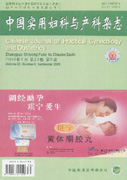Pregnancy with heart disease is one of the important causes of maternal mortality.Assessment and management of such patients before pregnancy, during pregnancy and during childbirth play an important role in reducing maternal mortality and improving maternal and infant outcomes.This article summarizes the risk assessment of pregnancy with heart disease and the choice of delivery mode at home and abroad in order to provide reference for clinical workers in diagnosis, treatment and management of pregnancy with heart disease.

